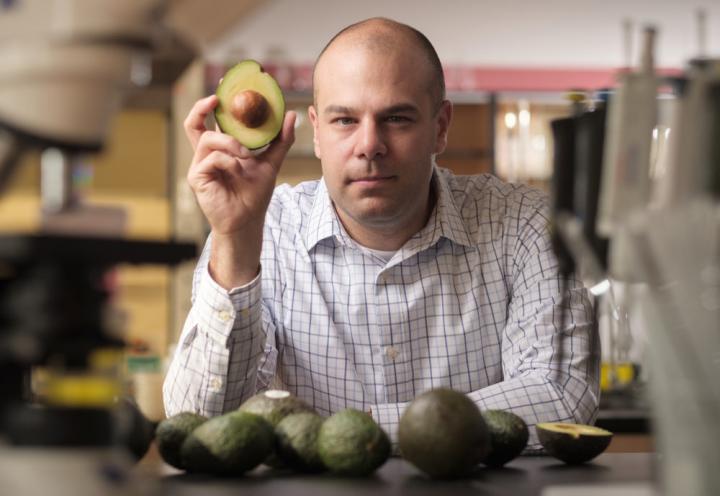
Credit: University of Guelph
Your guacamole may hold the key to managing obesity and helping delay or prevent diabetes, according to a new study by a University of Guelph research team.
For the first time, researchers led by Prof. Paul Spagnuolo have shown how a compound found only in avocados can inhibit cellular processes that normally lead to diabetes. In safety testing in humans, the team also found that the substance was absorbed into the blood with no adverse effects in the kidney, liver or muscle.
The study was recently published in the journal Molecular Nutrition and Food Research.
About one in four Canadians is obese, a chronic condition that is a leading cause of Type 2 diabetes. Insulin resistance in diabetic patients means their bodies are unable to properly remove glucose from the blood.
Those complications can arise when mitochondria, or the energy powerhouses in the body’s cells, are unable to burn fatty acids completely.
Normally, fatty acid oxidation allows the body to burn fats. Obesity or diabetes hinders that process, leading to incomplete oxidation.
The U of G researchers discovered that avocatin B (AvoB), a fat molecule found only in avocados, counters incomplete oxidation in skeletal muscle and the pancreas to reduce insulin resistance.
In their study, the team fed mice high-fat diets for eight weeks to induce obesity and insulin resistance. For the next five weeks, they added AvoB to the high-fat diets of half of the mice.
The treated mice weighed significantly less than those in the control group, showing slower weight gain. More important, said Spagnuolo, the treated mice showed greater insulin sensitivity, meaning that their bodies were able to absorb and burn blood glucose and improve their response to insulin.
In a human clinical study, AvoB given as a dietary supplement to participants eating a typical western diet was absorbed safely into their blood without affecting the kidney, liver or skeletal muscle. The team also saw reductions in weight in human subjects, although Spagnuolo said the result was not statistically significant.
Having demonstrated its safety in humans, they plan to conduct clinical trials to test AvoB’s efficacy in treating metabolic ailments in people.
Spagnuolo said the safety trial helped the team to determine just how much AvoB to include in the supplement formulation.
Having received Health Canada approval for the compound as a human supplement, he will begin selling it in powder and pill forms as soon as 2020 through SP Nutraceuticals Inc., a Burlington, Ont.-based natural health products company.
He said eating avocados alone would likely be ineffective, as the amount of natural avocatin B varies widely in the fruit and we still do not fully understand exactly how it is digested and absorbed when we consume a whole avocado.
Although avocados have been touted as a weight-loss food, Spagnuolo said more study is needed. He said a healthy diet and exercise are recommended to prevent metabolic disorders leading to obesity or diabetes.
PhD student Nawaz Ahmed, lead author of the paper, said, “We advocate healthy eating and exercise as solutions to the problem, but that’s difficult for some people. We’ve known this for decades, and obesity and diabetes are still a significant health problem.”
In earlier work funded by the Ontario Institute for Cancer Research, Spagnuolo has studied the potential use of avocatin B for treating acute myeloid leukemia.
###
Media Contact
Paul Spagnuolo
[email protected]
Original Source
https:/
Related Journal Article
http://dx.




